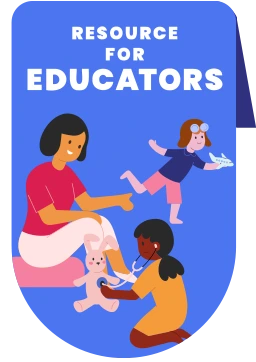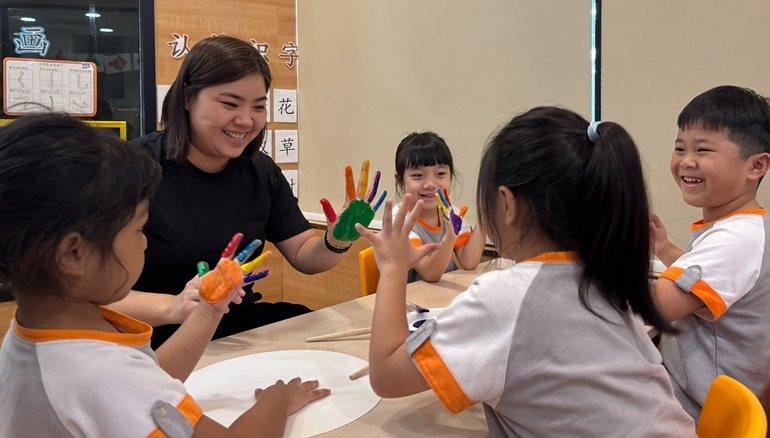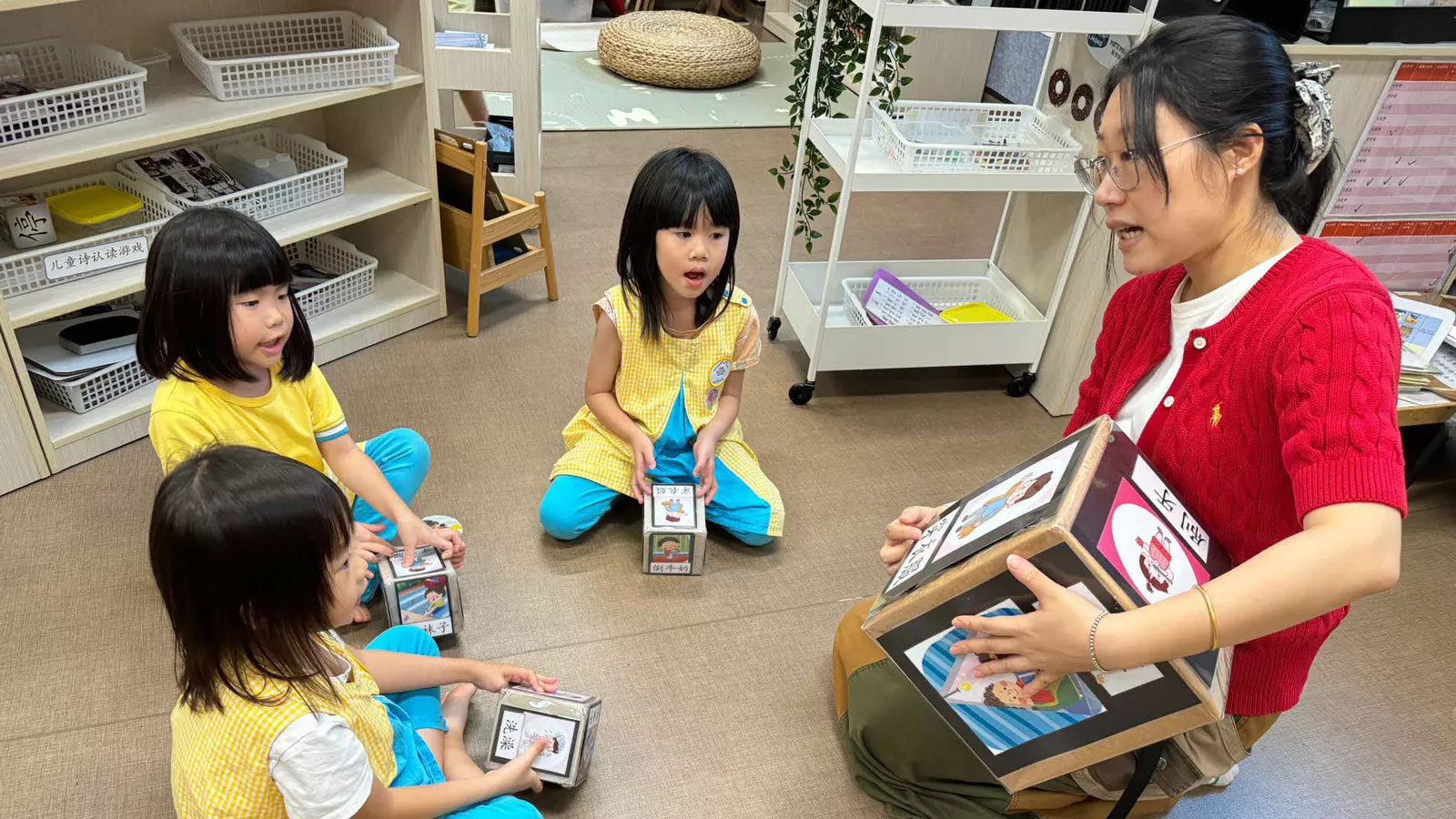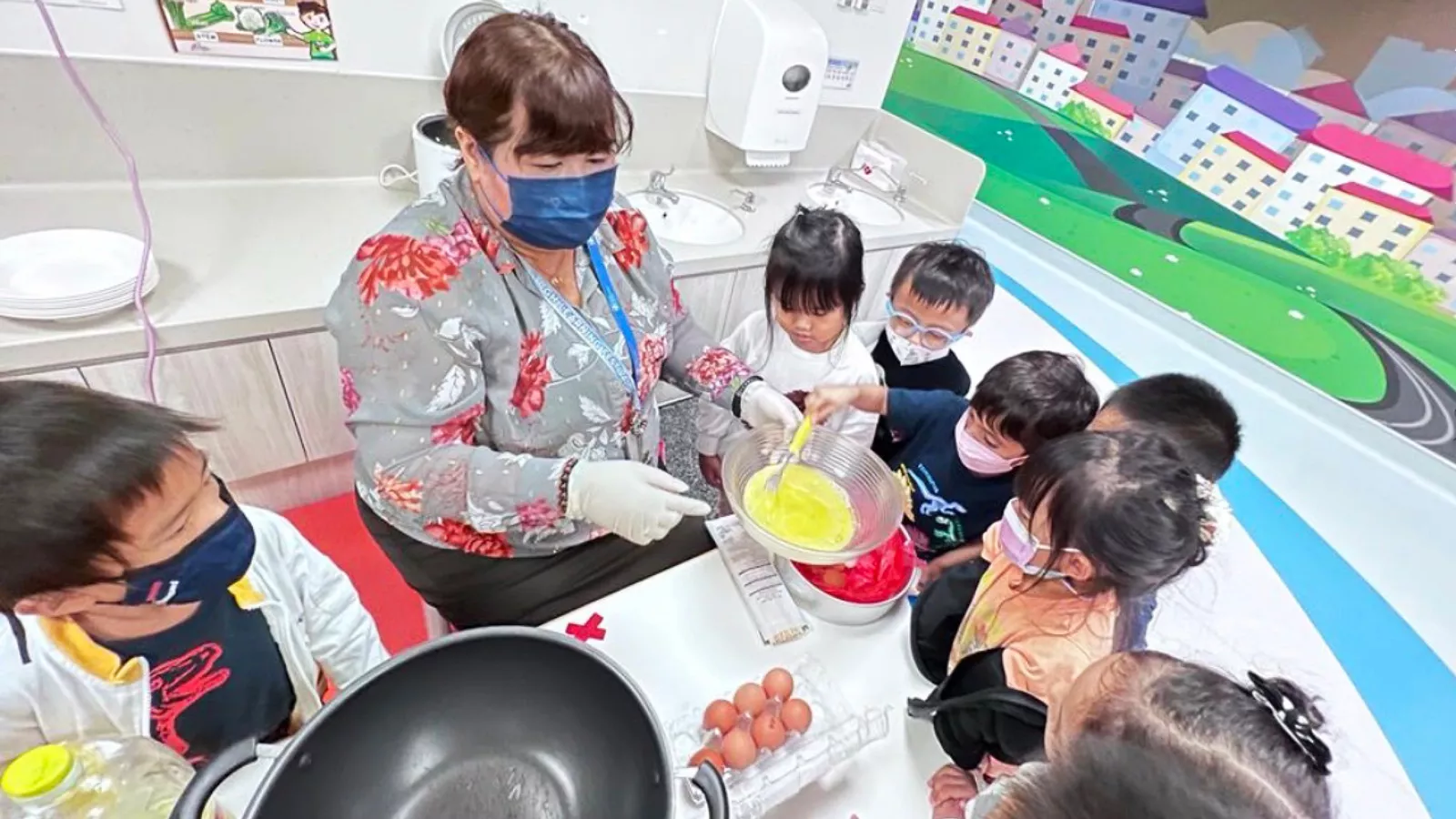Being imaginative, dramatic and expressive are essential ingredients of an infant educator’s toolkit, says Ms Shermaine Seet, Infant Lead Teacher at Sunflower Preschool @ Yishun. To embody these three qualities, educators and parents must tap into their own playful side.
“As babies start to explore the world around them, we need to capture their attention, engage their developing senses, and get them excited about learning new things,” explains Ms Seet. “Imaginative play uses various toys and activities to fuel their curiosity. Expressive language, such as varying our tone of voice and using animated gestures, helps infants understand and respond to what we are doing or saying.”
This approach helps Ms Seet build secure attachments with her young ones, creating a safe and nurturing environment for them to grow and thrive. Her efforts, honed through nearly 25 years’ experience in the early childhood sector, led to her clinching the ECDA Outstanding Infant Educator Award in 2024.
In sensory play, infants enjoy hands-on experiences with materials and objects designed to stimulate their senses. Ms Seet gives an example involving coloured sand. “At first, the children were hesitant to touch the sand, but my excited tone and facial expressions gave them confidence to explore,” she says. “Beginning with the tips of their fingers, they eventually put their whole hands in the sand tray.”
 Ms Seet speaks enthusiastically and makes expressive faces, like smiling widely, to motivate infants to explore the texture of coloured sand.
Ms Seet speaks enthusiastically and makes expressive faces, like smiling widely, to motivate infants to explore the texture of coloured sand.
To inject fun into caregiving routines like feeding, Ms Seet talks and sings to infants during mealtimes. Once they are ready to practise feeding themselves, she slowly introduces finger foods or plastic utensils. Verbal encouragement and exaggerated facial expressions provide positive reinforcement. “One mother was pleasantly surprised that her child was able to self-feed in preschool, as she was struggling with this at home,” says Ms Seet. “I shared my strategies with her so that she could replicate them.”
 During mealtimes, Ms Seet uses engaging conversations and songs to entertain babies and hold their attention.
During mealtimes, Ms Seet uses engaging conversations and songs to entertain babies and hold their attention.
Open communication with parents is important, particularly during the transition period when an infant joins the centre. To reassure anxious parents, Ms Seet sends them daily photo updates of their little ones. Regular parent-teacher meetings foster a collaborative relationship and ensure consistent care. “There are no difficult parents, only parents in difficult situations,” adds Ms Seet, who always strives to put herself in their shoes. “I try to understand their concerns and challenges, and help them as best I can.”
 Regular parent-teacher meetings are a good way to update and reassure parents who may be anxious about being away from their babies.
Regular parent-teacher meetings are a good way to update and reassure parents who may be anxious about being away from their babies.
Ms Seet highlights the case of a family whose child underwent heart surgery and took longer than his peers to achieve developmental milestones such as walking. Inspired by this experience, and the child’s bravery in overcoming obstacles, she developed a set of standard operating procedures (SOPs) in 2022 to guide her team in their practices. “The document ensures that infant educators are united in providing consistent, supportive care for children and their families,” she says.
 Aided in part by Ms Seet’s SOPs, infant educators receive clear guidance so that all infants attending their centre are well cared for.
Aided in part by Ms Seet’s SOPs, infant educators receive clear guidance so that all infants attending their centre are well cared for.








